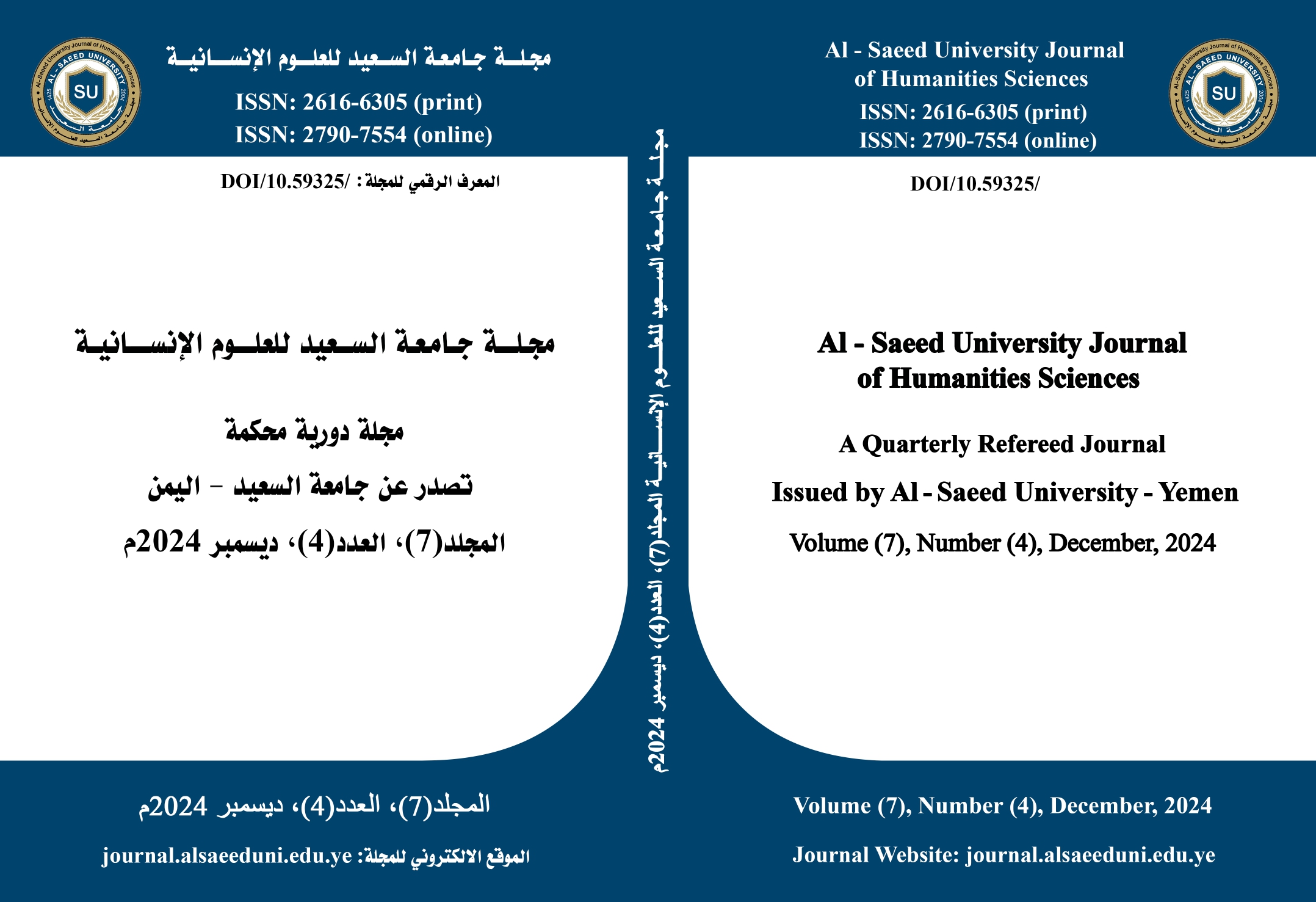Psychological Security and Social Support as Predictors of Post-Traumatic Growth among Middle School Students in Southern Boundary Schools in Najran Region
DOI:
https://doi.org/10.59325/sjhas.v7i4.239Keywords:
Psychological security, social support, post-traumatic growthAbstract
This study aims to explore the predictability of the post-traumatic growth via the psychological security. social support among middle school students in the city of Najran and to explore significant differences regarding the variable the system of the sturdy. The sample of the study consists of (522) middle school students at the southern border schools in the Najran region. The research tools consist of the psychological security scale. the social support scale and the Post-Traumatic Growth Scale. The results of the research revealed the predictability of the post-traumatic growth via the two variables of the psychological security and the social support. The study also concluded that there is a high level of psychological security. social support and the post-traumatic growth among the sample of the study. There are statistically significant differences at the level between the average scores of psychological security in its dimensions and the total score of the scale due to a variable of the study system in favor of the twinning system. There are also no statistically significant differences in the dimension of feeling of love. However. there are statistically significant differences between the average scores of social support in all its the dimensions and the total score in favor of the twinning system. There are statistically significant differences between the average scores of post-traumatic growth in the two dimensions of encouraging others and appreciating life and the total score of the post-traumatic growth scale in favor of the twinning system.
Downloads
Published
How to Cite
Issue
Section
License
Copyright (c) 2024 أحمد علي آل عواض، مصلح أسعد جبران الفيفي

This work is licensed under a Creative Commons Attribution 4.0 International License.
copyright is retained by the authors. Articles are licensed under an open access Creative Commons CC BY 4.0 license, meaning that anyone may download and read the paper for free. In addition, the article may be reused and quoted provided that the original published version is cited. These conditions allow for maximum use and exposure of the work.



